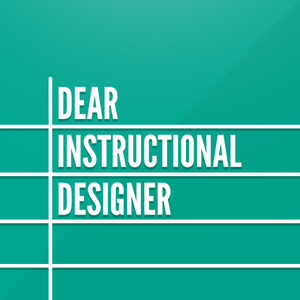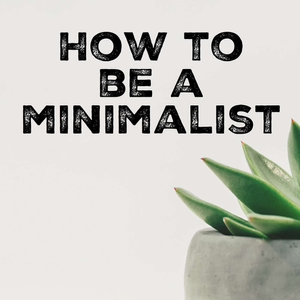
Tamika Butler on Antiracism, Equity, and Self-Care Through Solopreneurship
12/21/20 • -1 min
As a watershed year comes to a close, Tamika Butler, Esq., founder and principal of Tamika L. Butler Consulting, joins host Courtney Kashima, AICP, on this episode of the People Behind the Plans podcast series. The result is a stirring, uplifting, and funny conversation on the issues facing everyone who works to undo society’s inequities. Tamika’s practice focuses on the built environment, equity, antiracism, diversity and inclusion, organizational behavior, and change management. A transportation planner, lawyer, and nonprofit executive director in previous roles, she explains why she struck out on her own after the pandemic started. She and Courtney discuss the positives and negatives of working for yourself, as well as why it’s important for urban planning firms and other agencies to collaborate with each other.
Both planners express their hopes for equity work going forward — that agencies and organizations understand that these endeavors cannot be done once and forgotten about. That engagement should be an ongoing priority rather than something done when the timing suits the organization. That those in positions of power recognize how easy it is to value people, and that firms become culturally specific, not just culturally competent. Tamika also shares her advice for planners looking to step into their power and put their antiracism ideals into practice.
As a watershed year comes to a close, Tamika Butler, Esq., founder and principal of Tamika L. Butler Consulting, joins host Courtney Kashima, AICP, on this episode of the People Behind the Plans podcast series. The result is a stirring, uplifting, and funny conversation on the issues facing everyone who works to undo society’s inequities. Tamika’s practice focuses on the built environment, equity, antiracism, diversity and inclusion, organizational behavior, and change management. A transportation planner, lawyer, and nonprofit executive director in previous roles, she explains why she struck out on her own after the pandemic started. She and Courtney discuss the positives and negatives of working for yourself, as well as why it’s important for urban planning firms and other agencies to collaborate with each other.
Both planners express their hopes for equity work going forward — that agencies and organizations understand that these endeavors cannot be done once and forgotten about. That engagement should be an ongoing priority rather than something done when the timing suits the organization. That those in positions of power recognize how easy it is to value people, and that firms become culturally specific, not just culturally competent. Tamika also shares her advice for planners looking to step into their power and put their antiracism ideals into practice.
Previous Episode

Seeking Justice and Showing Communities Love Through Planning
When social justice planner Monique López, AICP, MCRP, MA, talks about her anti-racist, values-driven participatory planning and design firm called Pueblo Planning, she describes its work in no uncertain terms: “I still very much see this as an experiment in love ... an experiment in justice. ... And coming in with that particular mindset allows me to be flexible, allows me to be open-minded and open-hearted when I am held accountable by community members, when I am held accountable by, by social-justice movements that maybe say, You know, that planning process that we engaged in? It should have been done this way.”
Pueblo Planning has done work with people who are unhoused, earn lower incomes, do not claim English as their first language, are senior, and are part of the LGBTQ community. Monique tells host Courtney Kashima, AICP, stories from some of Pueblo’s projects, merging anecdotes with the wisdom they brought her to create poignant takeaways for listeners. From divulging her planning “origin story” (in her early twenties, fighting a sewage sludge treatment plant that was threatening to come into her neighborhood), to musing on why Sherry Arnstein’s 1969 JAPA article on citizen participation is still relevant today, to revealing why Pueblo Planning couldn’t run headlong to the Zoom platform when the pandemic hit, Monique displays a passion for social justice that will inspire planners working in every sector.
Next Episode

Why We Need More Intergenerational Policies, Programs, and Places
You've probably heard the term "multigenerational," but what about "intergenerational"? Matthew Kaplan, professor of Intergenerational Programs and Aging at Penn State University, outlines what that means for APA's editor in chief Meghan Stromberg, and the two discuss some of the fascinating case studies in intergenerational programming from around the world. Matt also describes how the pandemic has forced intergenerational planners and other professionals to come up with solutions for people who must stay physically distant — a challenging hurdle for a discipline rooted in interaction.
If you like this episode you’ll love
Episode Comments
Generate a badge
Get a badge for your website that links back to this episode
<a href="https://goodpods.com/podcasts/american-planning-association-44917/tamika-butler-on-antiracism-equity-and-self-care-through-solopreneursh-10423241"> <img src="https://storage.googleapis.com/goodpods-images-bucket/badges/generic-badge-1.svg" alt="listen to tamika butler on antiracism, equity, and self-care through solopreneurship on goodpods" style="width: 225px" /> </a>
Copy




